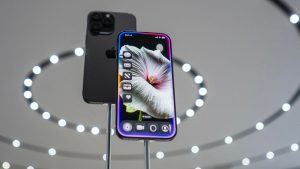African-American Vernacular English (AAVE), also known as Black Vernacular English (BVA) or ebonics, is a historic American English dialect that millions of people speak. It’s a part of our cultural DNA and is a blend of words and ways of speaking rooted in various African cultures as well as the English spoken in Southern U.S. states, with additional contributions from Creole.
This way of speaking has long had negative connotations associated with it. People who speak AAVE are often seen as uneducated and not a cultural fit in workplaces managed by the dominant culture. Many Black people are penalized for a way of speaking that’s deeply rooted in this country and yet, despite their education, accomplishments and accolades, speaking AAVE can significantly diminish their professional prospects.
This shouldn’t be the case. Speaking a different dialect should not negate the professional impact, skills and value that a worker brings. Companies that claim to support diversity, equity, and inclusion (DEI) while simultaneously discriminating against language or dialect should reconsider their stance on the topic.
I am working to change that. I help organizations break barriers and integrate DEIB into their business frameworks with a human-centered approach. I will share how organizations like yours can be more conscious about language and dialect bias to do better on their DEI and inclusion goals.
Hire for a culture “add,” not a culture “fit”
Many individuals who speak AAVE are often dismissed in the job interview process because they don’t seem like a good cultural “fit.” I’ve discussed the dangers of hiring for culture fit before, but it’s worth noting that language or dialect should not invalidate a person’s ability to contribute, add value or participate in work life.
Instead of assuming the status quo is the ideal culture in the company, consider the very real possibility that having folks who speak AAVE or another dialect or language on the team can truly “add” to the company culture. For example, perhaps someone speaking AAVE can bring a new perspective to company projects or dialogues. Or perhaps they can connect with diverse partners and stakeholders in a way that the dominant culture hasn’t previously found successful. Think outside the box about how someone’s language or dialect can actually enhance your company culture instead of “fit” into it.
Related: Avoiding the Sea of Sameness: How Hiring for Culture Improves DEI
Never judge a book by its cover
Although people who speak AAVE are often described as “ghetto,” “loud,” or “aggressive,” it’s often a misconception. A prime example is Angel Reese, a Louisiana State University basketball player who has skyrocketed in popularity in recent weeks. She’s had to face dialect and gender bias in the public eye.
Angel said, “I’m too hood. I’m too ghetto. I don’t fit the narrative and I’m ok with that. I’m from Baltimore where you hoop and talk trash. If I was a boy, y’all wouldn’t be saying nun at all.” Angel was referring to a culture of basketball that has a double standard for women, specifically for women who speak like her. While some are considered “ladylike” in the sport, others are called something very different.
Apply this same logic to the workplace. If a worker doesn’t speak exactly like another colleague who represents the norm of the workplace culture, will they still be accepted and feel a sense of belonging? Why should language or dialect stand in the way of someone belonging in the workplace or prevent them from getting hired at all?
DEI extends beyond skin and gender. Dialect and language should not create a hostile atmosphere where Black workers are undervalued, demeaned or held down at lower rungs in the organization because of the way they speak.
Related: Hire Like a Diversity Expert: 5 Key Qualities of Inclusive Employees
Bias against people who speak AAVE hurts organizations, too
Did you know the fastest-growing entrepreneurial demographic in the United States is Black women? Black women aren’t waiting for organizations that exhibit bias in their company culture to accept them — they’ve moved on to building their own empires.
Organizations that consciously or unconsciously bias their employee pool based on the dialect of English the applicant speaks are losing out in the end. As mentioned, dialect does not equate to intelligence, talent or value. Choosing not to hire a qualified candidate because they speak AAVE only pushes them to take their talents elsewhere which can often leave organizations at a deficit in terms of intellect, innovation and growth.
In this sense, bias not only hurts the person who experiences it, but it hurts organizations, too. This type of bias holds everyone back. So, why not remove the barrier to access, create more empathy and understanding of the various cultures that live within the United States, and see candidates through the lens of value, character and contribution?
Related: 5 Qualities of Black Excellence Overlooked in the Workplace
Final thoughts
Organizations are losing out every time they pass over a candidate that speaks a dialect of English that is not the cultural norm. Race, gender, ability and other identifiers are all seen as important parts of DEI that add to organizational growth and innovation. But why are dialect and language left out?
The people who experience some of the most bias are those who don’t look or speak like those in the dominant culture. Sticking to the norm is not always the best or only way. I invite organizations to expand their definition of belonging and value and to create increased awareness around dialect bias.
Human Resources and other groups involved in the hiring process and people management functions should put into place bias guardrails that push on hiring managers who may be discriminating against potential employees based on their dialect of English. The financial and cultural costs are too high to ignore. AAVE is English and should be valued and seen as such within institutions.
Read the full article here










